|
|
|
The primal howl of a deranged girl on a bridge reminds me of punk music...
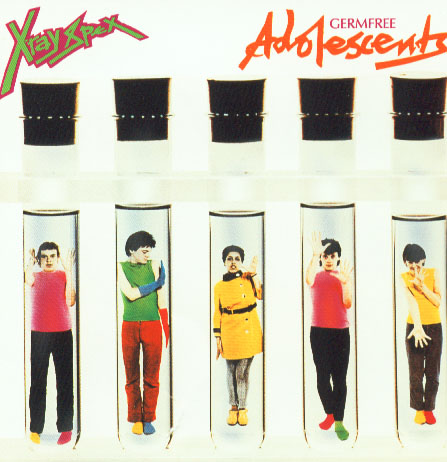
X-Ray Spex. “Oh Bondage Up Yours!” Germfree Adolescents. Virgin, 1991. This song was released as a single in 1977 and sums up nicely the feeling and attitude of punk. “Chain-store chain-smoke / I consume you all / chain-gang chain-mail / I don’t think at all / Oh bondage up yours / Oh bondage no more...” Commercialism, routine, stagnation, these were the ultimate evils, the causes of the disintegration of society, in lead vocalist Poly Styrene’s eyes.
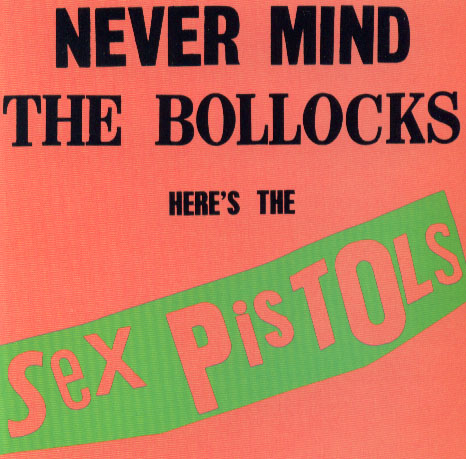
Sex Pistols. “Anarchy in the U.K.” Never Mind the Bollocks Here’s the Sex Pistols. Warner, 1977. The band that started it all. John Lydon, then known as Johnny Rotten, defined what it was to be a punk from the spikey hair, safety-pinned clothing, and amphetamine hobby to the anti-societal inclination. Punk as a movement and as an aesthetic starts with this band.
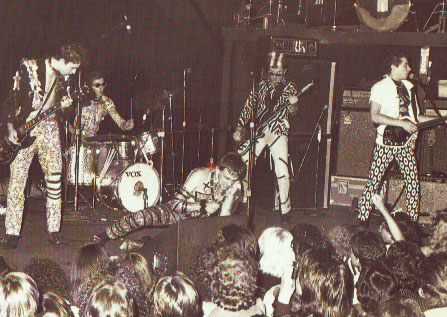
The Weirdos. DIY: We're Desperate - The L.A. Scene. Compilation. Rhino, 1993.
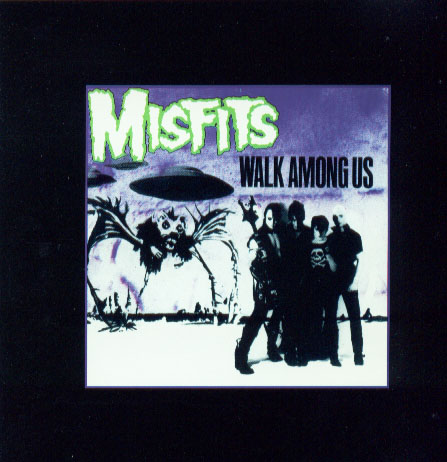
Misfits. “Devil’s Whorehouse.” Walk Among Us. Slash, 1982. American band who embraced the horror-rock aspects of punk. Musically similar to the Brits, but their “look” was an exaggeration of the horror motif that early punk fans had explored. Glen Danzig would later move into a more metal music style.

Fear. “Bomb the Russians.” More Beer. Slash, 1985. Another American band in classic British mode. Fast, intentionally offensive, and trying more than anything to have fun.
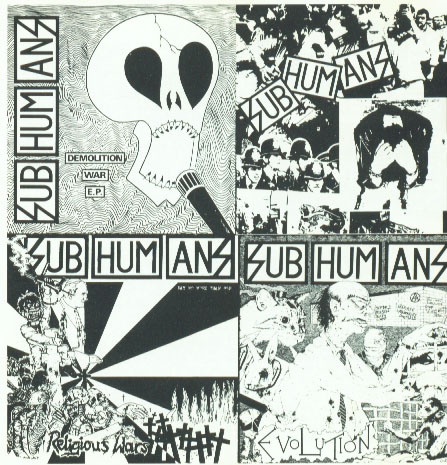
Subhumans. “Parasites.” EP-LP. Bluurg, 1986. Meanwhile, back on the island, punk had been infused with a new energy as the original bands either broke up or went into different directions musically. Punk became even faster, nastier, in some cases like with the Subhumans and Crass, political aspirations took over as the motivation for the music instead of the other way around. Many of these more overtly political bands weren’t content to entertain, they wanted to change the world.

Alien Sex Fiend. Acid Bath. Anagram, 1988.
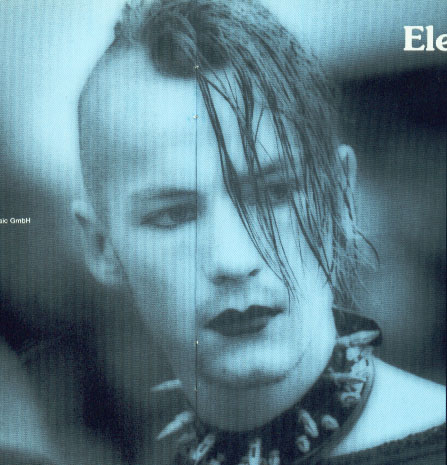
Modern Goths.
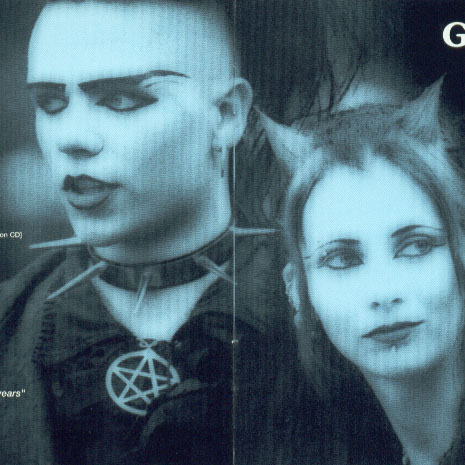
Dark Awakening Vol. 1. Compilation. COP International, no release date.

Green Day. “One of My Lies.” Kerplunk! Lookout, no date listed—either 1991 or 1992. The band that brought punk into the mainstream in America for the first time. Although punk had dominated the British charts from the moment the Sex Pistols came onto the scene, it had never been anything more than an underground phenomenon in the United States. Suddenly, thanks to Green Day, punk became fashionable. This was their last album on an independent label before they became superstars.
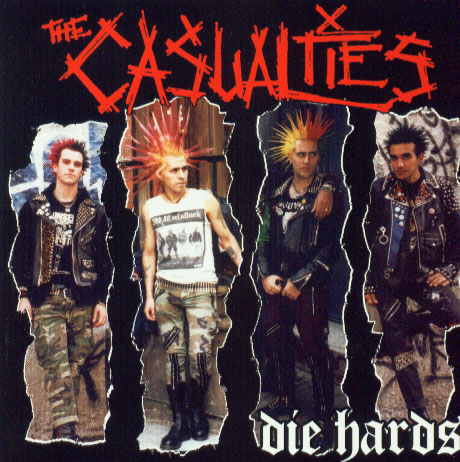
The Casualties. Die Hards. Side One Dummy, 2001.
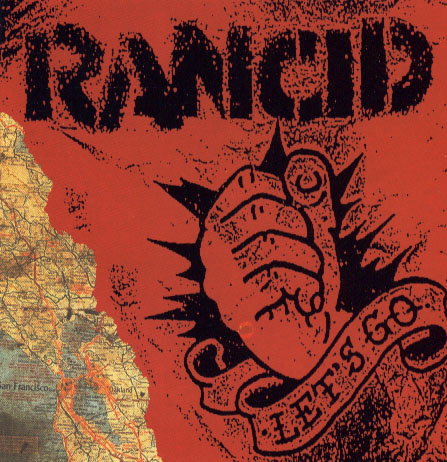
Rancid. “International Cover-Up.” Let’s Go. Epitaph, 1994. Before Green Day kicked down the door a band like Rancid couldn’t have gotten anywhere near the radio, but when punk exploded in the early 90s these guys were one of the hottest groups on the scene.

Refused. “The Deadly Rhythm.” The Shape of Punk to Come. Burning Heart, 1998. Although they fractured around the same time that this album came out the Refused did manage to push punk about as far as it could go before calling it quits. This album in particular helped instigate the “scream-o” genre which has become quit popular in modern hardcore circles.
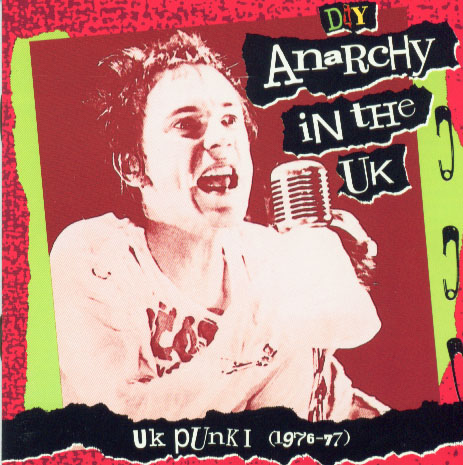
DIY: Anarchy in the UK – UK Punk I. Compilation. Rhino, 1993.
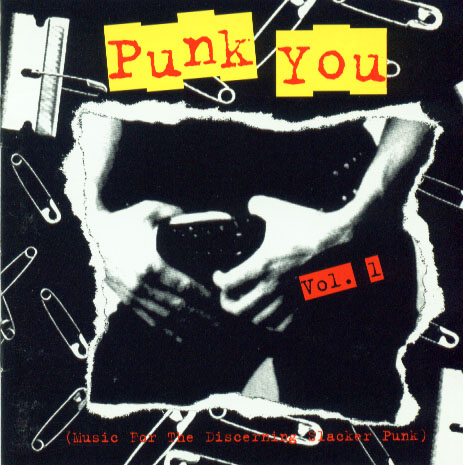
Punk You: Music for the Discerning Slacker Punk. Compilation. EMI, 1995.
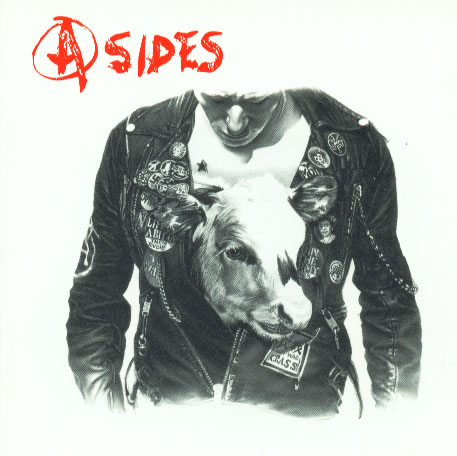
Zounds. “Can’t Cheat Karma.” A Sides (Part One. 1979/1982). Compilation. Crass, 1992. Excellent compilation put out by Crass Records featuring a surprising variety of music styles. This label loved originality and individuality and put out some of the most interesting records of the early 80s.
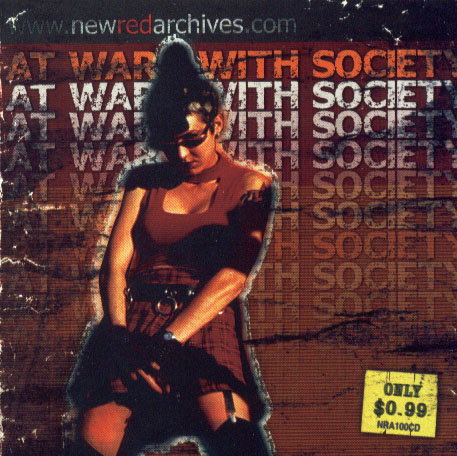
MDC. “Slow, Stupid & Hungry.” At War with Society. Compilation. New Red Archives, 1998. From the CD liner notes: “Long bored with corporate music? Instead of complaining, we opted to Fight Back with this act of commercial disobedience. [...] Too abrasive for the mainstream, these artists occupy the essential US underground. An underground At War With Society.” That says it all, really.
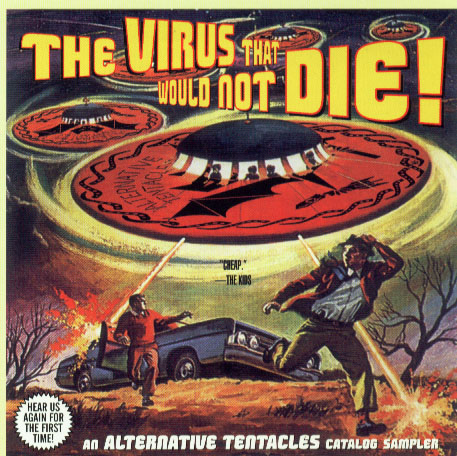
The Virus that Would Not Die! Compilation. Alternative Tentacles, 1997.
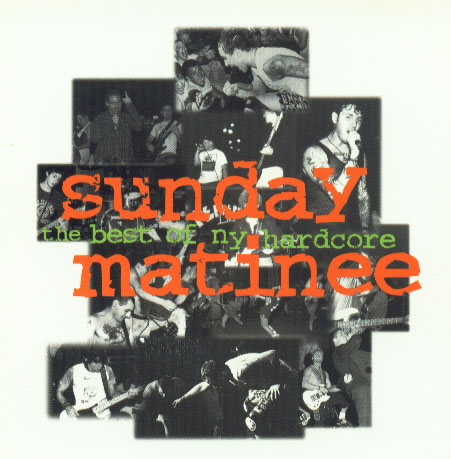
Reagan Youth. “Anytown.” Sunday Matinee: The Best of NY Hardcore. Compilation. Profile, 1994. Angst...definite angst.
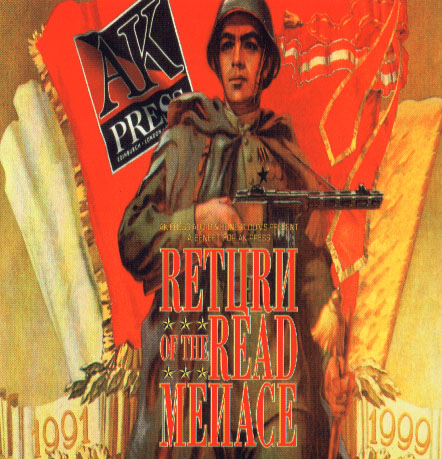
Atom and His Package. “Hats Off to Halford.” Return of the Read Menace. Compilation. Honest Don’s, no date listed—probably 1999. This compilation is a benefit disc with the proceeds, supposedly, going to help support AK Press, a left leaning book publisher. The interesting thing here is the variety of musical artists that all have punk leanings or affiliations, including the lovely and talented Atom who is still very punk even though he swapped his old band for a keyboard and drum machine.
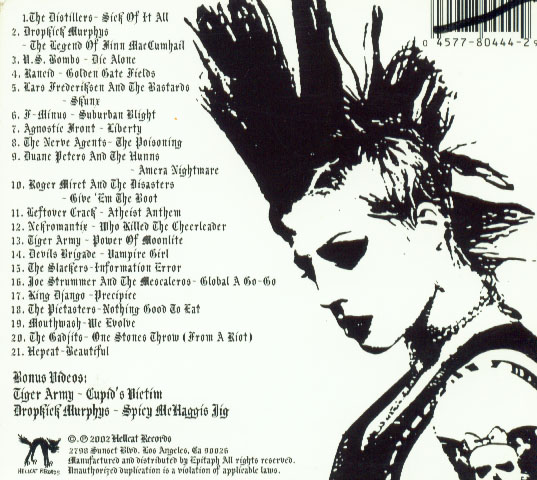
Tiger Army. “Power of Moonlight.” Give ‘em the Boot III. Compilation. Hellcat, 2002. Not since the early days of British punk has the movement been so associated with the styles and genres from which it formed as it is today. This compilation in particular showcases punk bands that lean towards rockabilly, ska, reggae, and horror-rock as well as bands that have returned to the hardcore confrontation with religion, suburban stagnation, and conformity that marked original bands like X-Ray Spex, Sex Pistols, and the more politically active second wave groups the Subhumans.
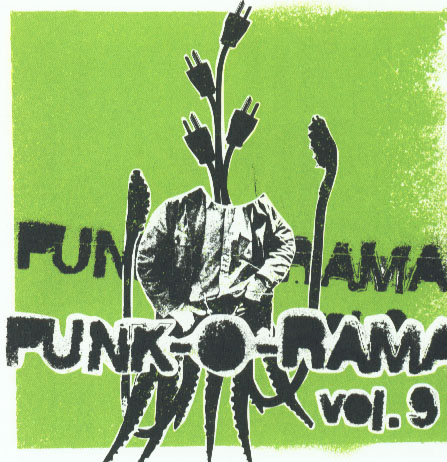
Bouncing Souls. “Sing Along Forever.” Punk-O-Rama Vol. 9. Compilation. Epitaph, 2004. I’m still not sure exactly what to make of compilations like this one. It is called Punk-O-Rama but only half the songs are straight-forward punk. The producers have put hip hop-rap, pop, hardcore that borders on thrash metal, and electro-industrial music on this collection along with the punk selections. If you watch the DVD that is included you get an even smaller percentage of punk than on the music CD. I can only assume that the record label that puts this collection out is using the the word “punk” in the title as a marketing strategy, hoping to capitalize on the lingering popularity of punk in the music marketplace. That said, some of the punk cuts on this collection, the few that are included, are very good.
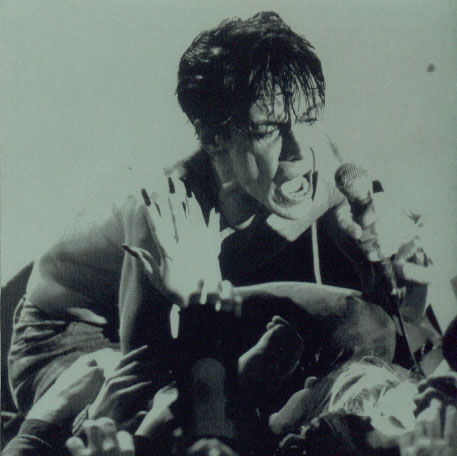
Lunachicks. “The Passenger.” We Will Fall: The Iggy Pop Tribute. Compilation. Royalty, 1997. From the promotional sticker on the front of the CD case: “20 artists salute the Godfather of Punk.” Again, I feel that mentioning that Iggy Pop was the “Godfather of Punk” is a marketing strategy. The fact that Iggy Pop was NOT a punk but a precursor to and influence on the punk movement, and that only a couple of the songs on this compilation are performed by punk bands, means much less to the creators of this collection than the fact that punk music was selling quite well when this CD came out.